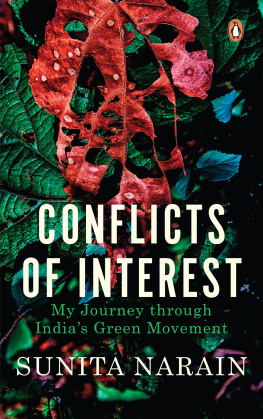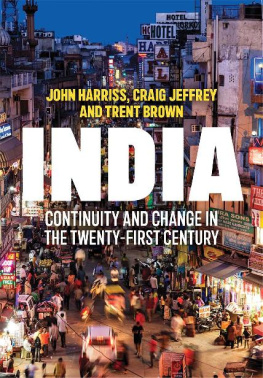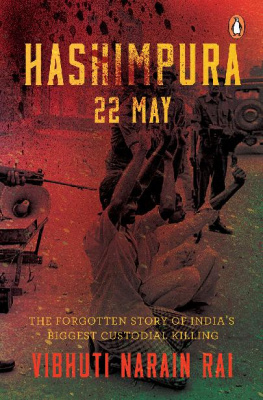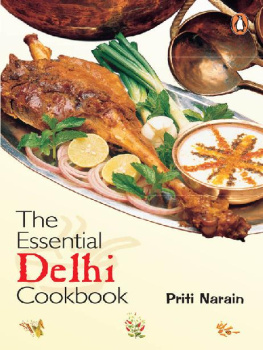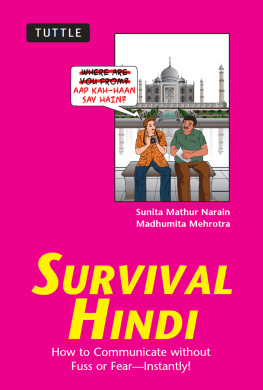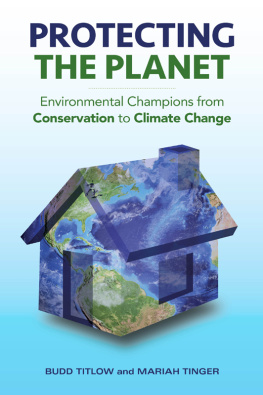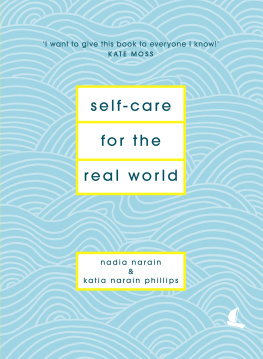Introduction
Contested Realities
T his book is a journey, one I would never have undertaken. Never, because in our work, looking back is a privilege. Every day there is a new challenge that forces us to learn more and to push forward more. In fact, in the kind of work we do, which is mostly frustrating and often deeply disturbing, the only way to stay ahead is to keep a tunnel viewfocus on where we need to gowith a single-minded obsession. Or desperation. That is what keeps my adrenaline going. And frankly its the only way not to let the sense of helplessnessgiven the immensity and often the sheer futility of the taskmake you go under.
But I have to also confess that writing Conflicts of Interest has been gratifying and fulfilling. It allowed me to put our work of many years in perspective; it allowed me the chance to see the whole picture. Not the gristly snapshots of the current battle, but what worked and what did not.
There are many lessonsor let me say interconnected strandsin our tale I find.
First, there is the issue of the issue itself. Often, we are so lost in the problem that we lose our ability to propose what should be done. This push for answers is what I believe has been our most important contribution. But it is even more difficult to stay the course to push for implementation. There are a billion-plus Indians; we are born with ideas and, of course, we are well-oiled critics. So, what is really difficult is not to fight that contested reality, but in the fight one should not lose focus.
Then there is the problem of the problem itself. In India, there are so many things that need to be done and all needed to be done yesterday. How do you prioritize? How do you choose not to respond to a call of distress? How do you decide that you will not work to get justice for a group of people who are, say, being devastated by a polluting factory or a mine or deforestation? How do you not get involved?
This, when you know that each problem is a world in itself. Our work of over thirty years shows that each issue is contested, and it takes time to get results. Take air pollution. We started work in the mid-1990s, got some victories by early 2000, but are now back in the fray. The cycle requires you to persist and persist.
And all this is when we have an institution, the Centre for Science and Environment (CSE), to back us. The fact that, in 1980, Anil Agarwal returned from his job at the International Institute for Environment and Development (IIED) in London to set up the CSE is our most important asset. Anil dreamt of making a huge difference in the way we managed our environment. He brought the perspectives about how peopleoften poor and often womenwere at the centre of the change that needed to be made. He forced us to think differently. But most importantly, he started the CSE. After him, our challengemy colleagues and minehas been to ensure that the institution continues to be driven by passion and not by the tasks that should be done. The purpose is important as much as the skill to ensure that it is done with forensic rigour and insight.
This is then the third thread. The fact is that every issue is contested because of conflicts of interest. It is contested because it is the contest of ideas and the contest of realities. To engage in this contest requires research and an ability to stand against the stated truthor what I have called the established fact. This is where we have faced our biggest enemies. Not because of the conflict of interests but because of the conflict of ideas, which is driven by interests.
Read any chapter and you will see what I am talking about. We had to fight the established science of diesel in our fight for clean air; the established science of pesticides in our work on toxins and food safety; the established science of conservation in our effort to bring a new way to manage wildlife so that people also benefit. The list is long. But the war is about the mind.
And as I write this, I am conscious that this war for a space of the mind is only going to become more difficult in the years to come. As I write in A Blueprint for the Future, we may believe that the world has become smaller, and we have become more connected, and media has become socialbut this is far from the truth. In reality, we are living in our individual bubbles, reading who we like and unfollowing those whose views we dont. Our news of the world has also shrunk, not expanded, and our tolerance for different world views, perspectives or just reality too is shrinking. It should worry us that there is so much that is outside our world and our view now. So many people and so many matters that are earth-shattering, so much grief and so much that needs to be fixed.
For people like us, who have to push the envelope of the status quo, the going will be tough. But this is where the next challenge will be. We cannot give up; we cannot say let the interests prevail. The conflict is real and it must be contested.
This is the real nub. The fact is that there are two distinct versions of environmentalismof the rich and of the poor. There is a technical view of the future where machines and automation will smooth our blips. Then there is the view that unless we develop in ways that are more humane and more inclusive we will not be able to build better futures. This is the politics of environment. It cannot be neutered.
Please do read Conflicts of Interest because you mustnot only to agree, not only to dissent. But because it tells stories of our present, and points to the common future we must make.
1
Air Pollution: Breathless
I deny that particulate matter is resulting in total excess deaths per year.
I deny that particulate matter is more deadly for the fact that they are breathed deep into the lungs and lodge there.
I deny that the smaller the particle is, the more harmful it is.
Tata Engineering and Locomotive Companys Affidavit at the Supreme Court, 1999
I remember the day as if it was yesterday. It was April 1999 and I was at my first press conference. It had been organized to tell the world that we had received a legal notice from Tata Motors for a whopping Rs 100 crore. This was over an article that my late colleague Anil Agarwal and I had written, talking about toxins emitted by diesel vehicles that were dangerous to our health. Anil had fallen ill. He had asked me to handle the press. I was faced with what I can only describe as a hostile groupTata was a respected business house; Centre for Science and Environment (CSE) was unknown at that time, while I was even lesser known.

